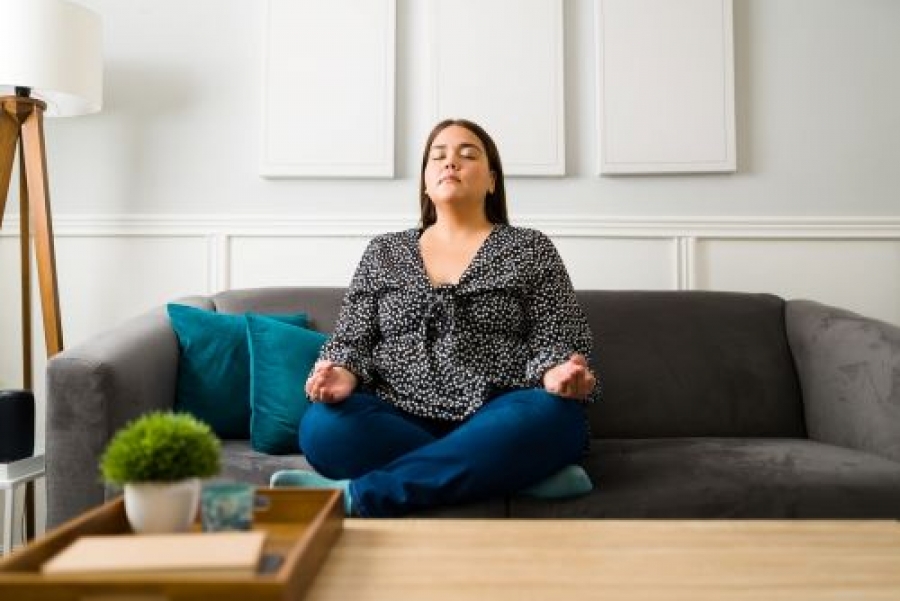Managing stress and anxiety can be difficult at times. For many, anxiety can be debilitating and prevent a person from completing everyday tasks. There are many ways to treat anxiety, but in this blog, we will cover ways to naturally alleviate anxiety and how our anxiety specialist in Dallas, TX can help you.
What is Anxiety?
Anxiety is a natural biological response to a perceived immediate danger. It’s something that everyone experiences on a daily basis. But if you’re experiencing anxiety repeatedly, then it could be a sign of a more complex problem.
It’s important to learn how to identify your anxiety symptoms and understand why you are experiencing them. That will then allow you to take steps to reduce your anxiety.
People who suffer from anxiety disorders can be very nervous and they might worry about things that aren’t important. This can make them feel embarrassed about their feelings, however, there’s nothing wrong with experiencing recurring anxiety. And if you know how to deal with the symptoms of your anxiety disorder, they won’t be able to stop you from living a normal life.
Anxiety disorders can take many different shapes and, at times, the symptoms you experience may take physical form. Some of the most common physical symptoms of anxiety include:
- Muscle tension
- Indigestion
- Panic attacks
- Rapid heart rate
- Difficulty breathing
- Racing thoughts
- Inability to stay still or calm
- Sweating hands
- Insomnia
- Loss of appetite
- Tightness in your chest
Natural Ways to Alleviate Anxiety Disorder Symptoms
Here are a few handy ways that you can keep your anxiety symptoms in check every day.
Stay Active
Regular exercise isn’t just about your physical health – it can be a huge helping hand for your mental well-being too. Exercise can divert your focus from things that are making you anxious, allowing you a chance to decompress. Getting your heart rate up also changes your brain chemistry to make more room for anti-anxiety chemicals, like serotonin. According to the APA, regular exercise leads to an improvement in concentration and willpower, which helps with certain anxiety symptoms.
Limit Your Alcohol Intake
Drinking alcohol can take the edge off because it’s a natural sedative. However, an excessive amount of alcohol can interfere with the brain’s balance of neurotransmitters. This interference causes an imbalance that may cause anxiety. So, make sure you watch your alcohol intake.
Alcohol has also been proven to disrupt your body’s natural ability to sleep. As we’ll discuss later, a good night’s rest is extremely important when battling anxiety.
Avoid Cigarettes
Smokers often reach for a cigarette during stressful times. That may be a quick fix for a few symptoms, but smoking may actually worsen your anxiety over time if you continue to do so. There are many different ways you can start quitting. For instance, the CDC recommends trying nicotine replacement therapy (NRT), such as patches or gums. NRT helps ease cravings by providing a steady dose of nicotine without the harmful effects of tobacco.
Limit Caffeine Intake
Caffeine is not your friend if you suffer from anxiety. In fact, caffeine may actually make you feel more anxious. It may also trigger panic attacks in those who have an anxiety panic disorder. This is because caffeine is a stimulant that makes people feel more alert and focused, yet anxious and jittery. Drinking too much coffee or other caffeinated beverages may cause headaches, stomachaches, irritability, insomnia, and anxiety attacks. To ween yourself off caffeinated beverages, consider switching to tea.
Get Restful Sleep
Sleep is essential to our well-being. Adults should try to get at least 7 to 8 hours of sleep each night. To help you get some good sleep, avoid watching TV in bed before you head to sleep. As we just noted, make sure you limit your caffeine intake, nicotine usage, and alcohol before bedtime. Keep your room dark and cool, write down your worries before hitting the hay, and do your best to go to sleep at the same time every night.
Retrain Your Brain with Neurofeedback
If you’re looking for an effective and long-lasting treatment for your anxiety, consider trying neurofeedback therapy. This therapy will help identify any areas of the brain or cognitive patterns that may be contributing to your anxiety symptoms. By gathering real-time feedback, neurofeedback can help retrain your brainwave patterns so you can better avoid anxiety triggers and gain control over your symptoms in the long term.
Book a Consultation with our Top-Rated Anxiety Specialist in Dallas, TX
Are you looking for a way to improve your quality of life? Then you’ve come to the right place.
At Braincode Centers, we have several highly trained brain specialists at our 3 locations. These individuals understand the ins and outs of anxiety disorders and other mental health conditions. After an initial consultation, we’ll develop a custom treatment plan for you to address your anxiety issues.
Contact us today to book your consultation with our anxiety specialist in Dallas, TX.

